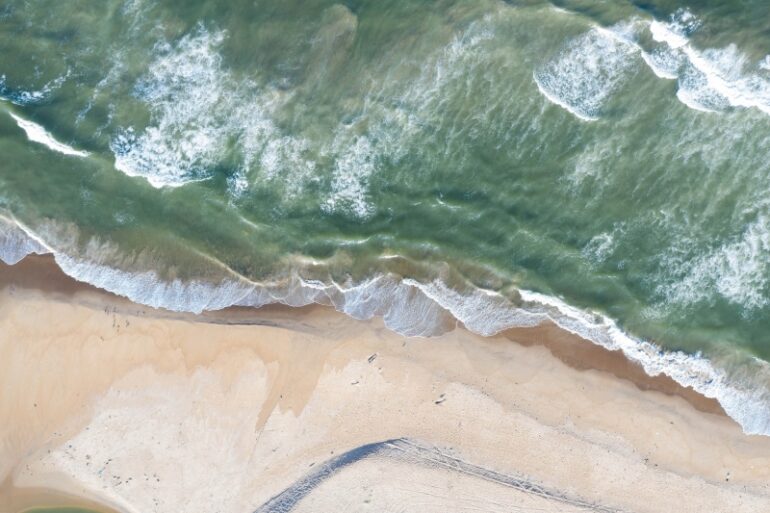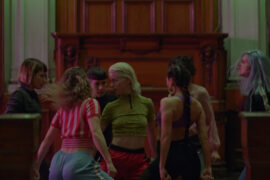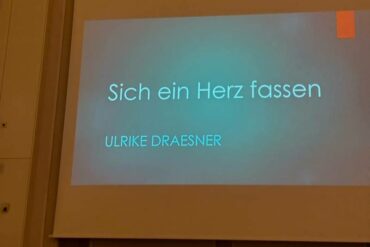Cinema was Agnès Varda’s home. In Varda by Agnès we are visiting this home. The documentary includes her early years in the film industry as well as later interactions with famous actors and movie makers.
By Seda Saygili
In her last film Varda par Agnès, the mother of French New Wave, Agnès Varda, offers a lot more than you would expect from a documentary. This is not a documentary that gives second hand information about Varda’s life but she narrates her own life and love for cinema, exclaiming: »I live in cinema«. This autobiographical documentary can be considered a cinematic lecture, one last speech from the bottom of her heart. Varda highlights three words that are important for her: inspiration, creation and sharing.
Inspiration is needed to make a film; motivations, ideas, circumstances ignite the desires to produce and release the product. These key principles of her career are illustrated by examples of Varda’s features, documentaries and exhibitions. The documentary underlines Varda’s belief that films are not made to be watched alone but to be shown.
One Last Goodbye
Varda, who died in 2019, was a filmmaker who proved her creativity with her films, documentaries, and exhibitions. In Varda par Agnès, she waves goodbye to life at 91 years old – and to her two big loves; cinema and her husband Jacques Demy, a famous French director. The documentary consists of photos and film scenes to present an insight into her vivid imagination and her emotional state. She tries to capture her memory with film clips as she also did in The Beaches of Agnès (2008) to whichVarda par Agnès can be seen as the sequel.
The cinematic technique of the documentary is very simple. As Agnès starts her storytelling, pictures and videos flashbacks are displayed in the background of the scenes. Recollections of the past lead her to the death of her late husband. She reveals that sorrow and pain can provide inspiration for her art and for this reason, she shot Jacquot de Nantes, a film about her husband’s life and work, after he passed away.
Varda par Agnès
France 2018
Director: Agnès Varda
119 minutes
Throughout her career, Agnès found inspiration from interesting things such as gleaning heart-shaped potatoes. An exhibition about them – Patatutopia – and the process of its creation can be seen in this documentary. Her reason for holding this exhibition is that she enjoys recycling things and the feeling of them not being wasted.
She calls this »giving a new life« to the things that are considered trash. Varda by Agnès not only exhibits Varda’s cinematic world, but also her humane side. For instance, she makes a beautiful grave for a cat which later turns into an exhibition that people can visit. With these playful details, the documentary is full of inspiration for aspiring actors, motion picture producers and directors.
Pioneer for Female Directors
According to movie critics, Agnès was one of the best movie makers of her time, part of the French New Wave, a very influential cinema movement with unique effects, editing, and narrative style, for example the tracking shot technique in which the camera follows the subject or object backwards in a long take. Especially the selection of colours in these movies was brilliant. This method of film-making was a challenge against the conventions of 1960s mainstream cinema. But despite their influence on film as an art form, Varda’s movies never reached big financial success.
For more than five decades, Agnès Varda made movies with the theme of female empowerment and criticized male hegemony in her works such as Vagabond (1985) which tells the struggles of a young woman in a patriarchal society. Varda often satirizes male-dominant society where women are seen as replaceable. The protagonist of her movie Le Bonheur, François, falls in love with another woman even though he is married. In One Sings, the Other Doesn’t (1977), she explores two women’s friendship and their battle for equality throughout the years. As Varda puts it in the documentary: »I tried to be a joyful feminist, but I was very angry«.
Subjective Time
Thus, Varda’s work has always been challenging to norms and conventions. A good starting point to get to know her work is Cleo de 5 a 7 (1962). In the 1960s, it was highly unusual to choose a woman for the main role. Varda par Agnès shows how challenging it was at the time to convince producers to shoot this film which takes place in a day, telling the story of a concerned woman waiting for her test results from the doctor.
Agnès Varda’s contribution and rebellion against the traditional way of filmmaking are still relevant for the industry today. Varda combines concrete, current themes with abstract, timeless ones: Cleo de 5 a 7 deals with the perception of time as an individual perspective. Varda believed time to be an illusion: »Illustrating time is difficult. Time feels different if we are happy or if we’re anxious if we are expecting someone or having fun. I call that subjective time«.
A Movie to Say Goodbye
Agnès by Varda reflects the soul of Agnès and displays the depths of her imagination. While walking on the beach she says:
If we opened people, we’d find landscapes. If we opened me, we’d find beaches.
This statement excellently mirrors Varda’s heart and mind. She always knew that her movies were not popular, as they were blockbusters but independent arthouse productions which concentrated mostly on women and their issues. Yet, they had an effect on people. Varda, as if she was saying goodbye to her audience, ends the movie in the middle of a sandstorm, with her own words: »Disappearing in the blur. Leaving you«.






